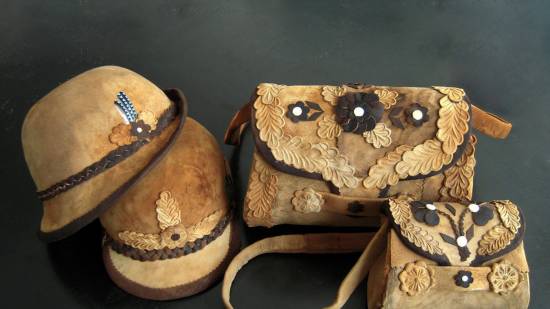Scientists create ‘leather’ from mushrooms taking fashion industry by storm
The fashion industry is constantly scrutinised and criticised for using leather as raw material for its products. Now" leather" which is sourced from plants is now all set to revolutionise the fashion world and business as per a report in smithsonianmag.com.
This new eco-friendly leather which is vegan in nature has been produced by California-based biotech company MycoWorks from fungi. The Guardian reports that the company transforms mycelium which is derived from the mushrooms’ root structure, into a substance whose appearance and feel are that of animal-based leather.
In a statement, Patrick Thomas who is part of the MycoWorks Board of Directors and also a former CEO of Hermés said: "It's the first time that a company is able to produce a vegetal product which is matching or even exceeding the quality and durability and aesthetics of a natural one. It's a super achievement.”
Even though it is a mushroom-based substance, through mycelium cells which MycoWorks engineers, it is made rigid. The cells grown in 3-D structures, interweave densely, becoming tough material and has been christened as Fine Mycelium. This as per MycoWorks website has the strength, durability, and performance of traditional leather.
This material differs from other varieties of vegan leather created from mushrooms. These are made from compressed solid foam that is created naturally by mycelium and does not have the feel and look of the animal and synthetic leather in the absence of engineering.
Grown in trays, the Fine Mycelium can be fitted to the exact specifications of the designer thereby doing away with waste generated from excess scraps, said the Guardian report. Following the tanning and finishing, the harvested Fine Mycelium is called Reishi. Significantly, this leather, which feels like the one obtained from animals, is processed using chromium-free method, a chemical which forms a part of the tannery wastewater, reported Refinery29.
In March 2021, this vegan leather made its high fashion debut as Hermés debuted their Victoria bag, which featured MycoWork's Fine Mycelium material.
Creation of leather with plants has come at an appropriate time when the scientists are working to combat the growing crisis of climate change and animal agriculture. Bovine leather affects the environment quite seriously, in fact more than any other kind of fabric. This is because of deforestation and emission of methane that is associated with raising of animals for leather and meat, the Guardian report stated.
According to EcoWatch livestock as a single factor makes up for 15 per cent of the world’s greenhouse emissions.
There are other plant-based leathers in the market like the one made from pineapple leaf fibre and those made from cactuses.
Some critics highlight that this leather from fungi is available as a luxury object as double-face cashmere and silk organza. To be sustainable in the true sense of the word, it has been available at lower prices so that it is affordable. Further, sceptics wonder if these companies can provide enough raw material for all products.
Yet, Fine Mycelium which is carbon-neutral, is a sustainable option for making long-lasting goods.
Sharing his views Merlin Sheldrake, a biologist said: "We have been trained as consumers to think in terms of a straight line whereby we buy something, use it, and throw it away. Fungi can inform thinking about fashion on lots of levels. This is about material innovation, but it's also about the culture of making endless new things, and what we can learn from thinking in terms of nature and of cycles instead.”
Sheldrake has authored the book “Entangled Lives: How Fungi Make Our Worlds, Change Our Minds, and Shape Our Futures”.


